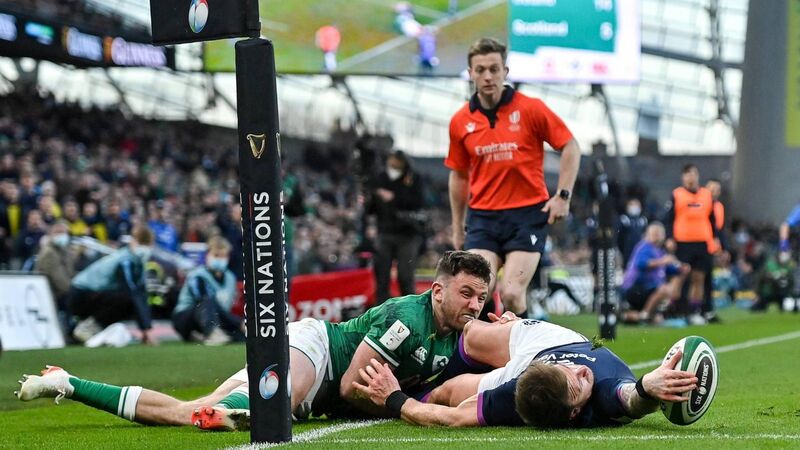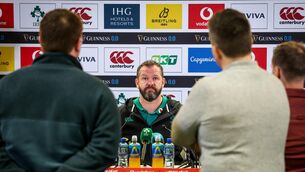Donal Lenihan: Small creases that New Zealand tour will help iron out

Stuart Hogg of Scotland is tackled into touch by Hugo Keenan of Ireland during the Guinness Six Nations Rugby Championship match between Ireland and Scotland at Aviva Stadium in Dublin. Photo by Ramsey Cardy/Sportsfile
Super Saturday? Not quite. For that you need an ever-evolving plot that takes the path less chosen and anticipated.
Ultimately, not only did the tournament's best team emerge victorious, Frqance did so capturing the ultimate prize on offer, the cherished Grand Slam. In the runners up slot, the standout next best in Ireland.










